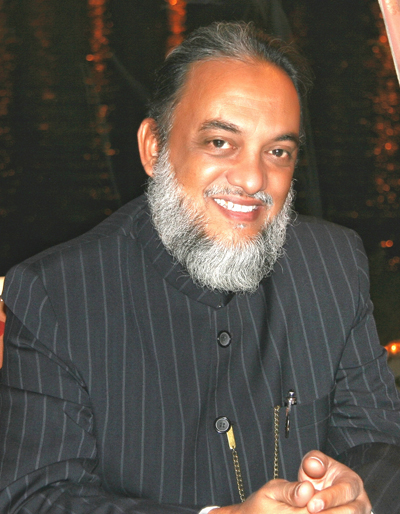We must remember that the history of nations is like the wave of the ocean. It rises and falls and rises again, only to fall again. Permanence is not a phenomenon of this world, though mankind has eternally wasted its time in trying to find it. Be that freedom from death personally or a legacy that will be everlasting. What we Muslims are going through now is neither new nor the last time we will see this.
We need to get our boat out of the trough in the ocean and back on the peak of the wave. In one situation, the power of the ocean seems to be your enemy, bent on destroying you. In the other it is taking you to your goal, using its massive force to drive you forward. Nothing changed in the ocean. It is the same ocean, the same waves with the same power. What changed is the position of your boat. The one who tries to control the ocean is bound to perish. While the one who tries to use the force of the ocean to his advantage succeeds. As they say, ‘There are no favorable winds; only good sailors.’ The good thing about bad times is that they strengthen you. The blow that doesn’t break your back only makes you stronger. Here’s what I believe we Muslims need to do.
So, here’s my solution.
If I was asked to define in one word, the problem of Muslims and Islam, I would say it is ‘image’. It is because of this that the ‘Opposition’ has been able to project us into the space of the ‘Other’, to be hated, maligned, demonized and destroyed. Not that they can do it, but they can try and that is painful enough. This is possible because we are relatively unknown, not understood and a mystery to most people. Add to this the selective and often distorted projection of negative things from the culture of some Muslim countries as being aspects of Islam and we end up with the mess that we are in. Therefore, our principle challenge is really quite simple; change the image.
It is a common copout strategy to ‘globalize’ issues which apparently legitimizes our inaction in trying to solve them. ‘How can I solve such a massive problem? After all I am one person.’ But as Mother Teresa said, ‘If you can’t feed a hundred people, feed one.’ Localizing the problem suddenly makes it possible for each one of us to contribute and by that contribution, we can have a global impact.
My philosophy in consulting as well as life is to try to seek solutions that are simple, easy to understand and teach. These are the best solutions for they can proliferate fastest. Like the ‘Lily pad problem’; A lily pad grows so that each day it doubles its size (area). On the 20th day of its life, it completely covers the pond. On what day of its life was the pond half covered? I am sure you can guess the answer. We are talking about small changes that together can change the world.
To change our image, which is necessary for us to get out of the position of the ‘Global Other’ we must use the old adage: ‘Think global, act local.’ Muslims are supposed to be 20% of the global population. This means that for every Muslim, there are four people who are not Muslim. This means that the global image problem, at a local level, can be defined as the opinions of four people. That means that all that I need to do is to convince four people, that I am the best thing that happened in their lives. Win the hearts of four people. Not more. Just four. Convince by my behavior, because people listen with their eyes. They don’t care what you say, until they see what you do. It is our personal experience of each other that we use to form our opinions, including our stereotypes and prejudices. When these stereotypes and prejudices come face to face with personal concrete experience, they melt away in the light of experienced truth.
That is my contention and that is my solution.
As you read this, I am sure there will be many who will say, ‘This is not simple. It is simplistic. It is too simple to work. How can the solution to such a massive problem be so simple?
A simple strategy like what I have suggested has the following strengths:
So, what are you waiting for? At worst, even if the strategy fails to bring about global change, you will still have four people who believe that you are the best thing that happened to them in their lives. Now what’s so bad about that?

International Advisor, Author, Life Coach, Corporate Consultant, specializing in Leadership Development. On the staff of GE and Andersen Corporate Universities. He founded, YAWAR BAIG & ASSOCIATES©. In 30 years of training and consulting Yawar has taught more than 200,000 managers, administrators, teachers, technologists and theologians on 3 continents. Yawar speaks five languages.